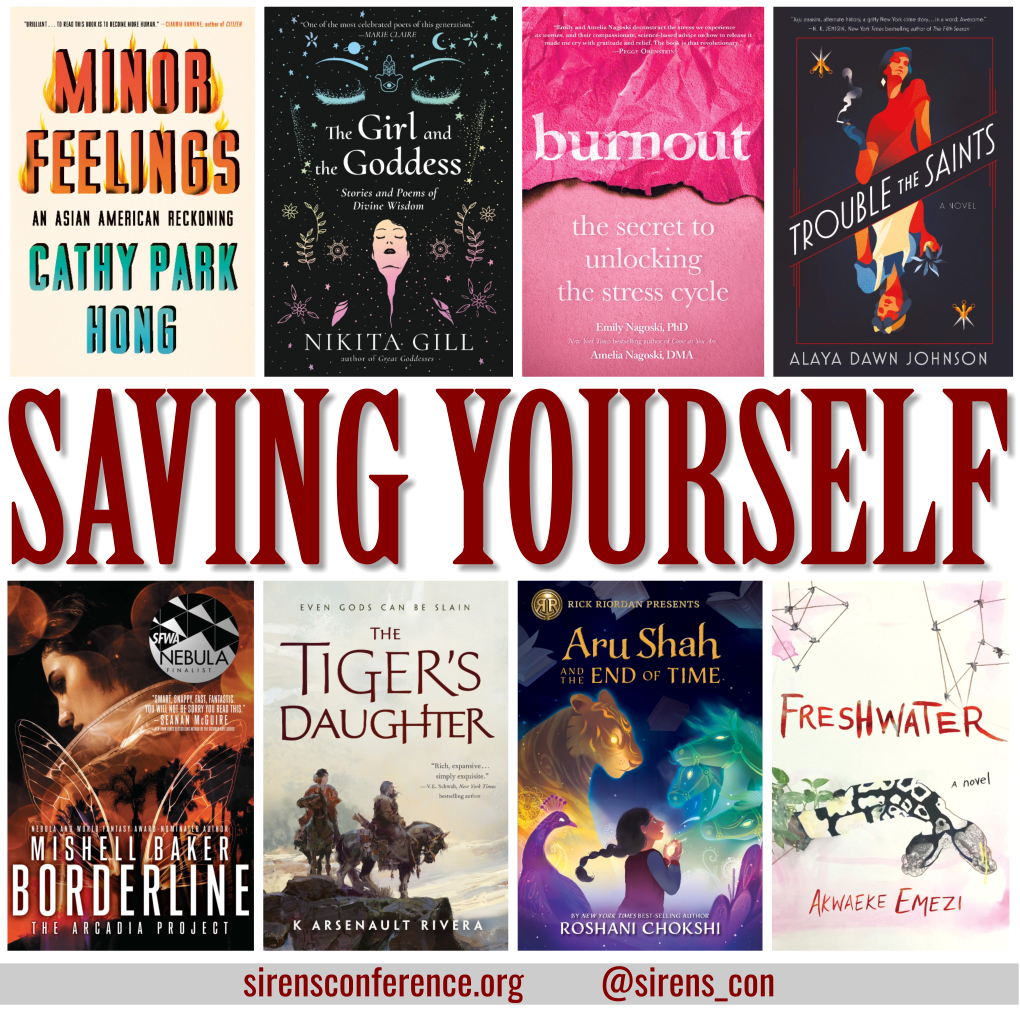
Not being able to gather in person with the Sirens community in 2020 was heartrending. But it also gave us the gift of time: a chance, after more than a decade of work, to take a breath and consider what Sirens is today—and what we want it to be tomorrow.
Sirens is a conference that actively seeks to amplify voices that are pushing boundaries in speculative spaces—and specifically, are pushing those boundaries in the direction of a more inclusive, more empathetic, more just world. Since we featured works on this year’s villainous theme last year, this year’s Sirens Reading Challenge instead showcases 50 works by female, nonbinary, and trans authors that envision that better world—and we’re exploring what that means to us in a series of six posts, using those works as reference points.
Our first four posts discussed finding and sharing those speculative and nonfiction works that, respectively, reclaim what it means for us to be from somewhere, to transgress boundaries, expectations, and limitations for all people of marginalized genders, to revolutionize our world through collective action, and to resolutely, radically hope. Today, we discuss both how necessary and how difficult it can be to save yourself from what can feel like an inexorable destiny of impossibility.
Saving Yourself
Secure your own oxygen mask before helping others.
If you’ve ever flown, you know the directive. In the event of a sudden drop in cabin pressure, oxygen masks will drop from above and you are instructed to don your oxygen mask before helping others don theirs. The notion is, of course, that you cannot care for others until you’ve established your own safety.
And over the past decade, women—and others of marginalized genders, but so often specifically women—have been admonished to secure their own safety masks so that they may continue to bear impossibly heavy loads of helping others: increasingly convoluted approaches to work-life balance, increasingly peppy assurances that we can have it all, increasing sacrifices of our own pleasures as unnecessary or even counterproductive—even as it becomes ever more apparent that until the white heteropatriarchy stops demanding endless burdens of us in support of white cisgender men, we will never have it all, our sacrifices will never find us enough time, and multitasking is a myth.
And even more troublesome, into this breach—into this divide between the “all” that we want and the “all” that we are instructed to achieve, this divide between what we try to accomplish and what we can actually achieve in any given life—intrudes, insidiously, the notion of self-care. Originally designed as permission for women to take a break—to take an hour for a bubble bath, twenty minutes for a cup of tea—self-care has become, as is our capitalist wont, a billion-dollar industry focused on making women feel guilty, not for failing others, but for failing to somehow conjure the time to spend an hour with an overpriced bath bomb. If you Google the quote above about securing your own mask, the primary search results are overwhelmingly articles, so many by cisgender men, scolding women about how they are supposed to—required to—engage in self-care as a method of securing their own masks so that they may continue caring for others. Something ostensibly for us, whether you like bubble baths or not, has inevitably achieved its endgame: a source of yet more guilt for not adding one more thing to our already impossible schedules, for not taking time for to use patriarchy-approved products in patriarchy-approved pastimes so that we’re more able to care for others.
As if we needed confirmation that we have to save ourselves.
But we need to save ourselves in ways that work for us. And maybe that is a bubble bath and a glass or wine, or a cup of tea in a cozy nook. But maybe that’s a hike or a bike ride, a theme park with friends or a solo vacation. Maybe it’s deciding what we—we—give a fuck about and what we don’t. Maybe we abandon dust-free homes, makeup at the grocery store, and perfect school science projects. Maybe we decide to spend our fucks on new relationships, hobbies that make us happy, and learning cool things.
We need time: time to breathe, time to reflect, time to decide which of our endless tasks are necessary, which make us happy, which are fun—and ditch the rest. We need time: To remember who we are and what we want. We need time: to save ourselves.
And so, in the speculative space that is Sirens, our fifth mission statement is saving ourselves: to find and share those stories that show us, in a thousand different ways, how to save ourselves from intrusive, invasive societal demands and dangers.
Whether we save ourselves with a sword or a blaster, politics or propaganda, escape or revolution, we need stories that show us how: how to remake not our world, but our safety in it. That remind us that we are vital, valid, and valuable. That we’ve been tasked with the impossible, to satisfy a series of unwanted, unwelcome intrusions, and convinced that, no matter how many bubble baths we take, we are a failure for not achieving someone else’s to-do list. If we must save ourselves, we must see that in our stories.
And we must—determinedly, resolutely—save ourselves, in our own time, in our way.
Saving Yourself Works
Burnout: The Secret to Unlocking the Stress Cycle, the groundbreaking work by Emily Nagoski and Amelia Nagoski, examines what it means, as a modern woman, to be burned out—and we all are, assuredly, burned out from the daily challenge of trying to meet society’s impossible expectations. With science, cultural insights, and sheer common sense, the authors examine the physical impact of burnout, how it impacts our daily lives, and what we can do to, if not reduce our stressors, convince our bodies to cease their fight or flight responses. (Hint: It’s not more self-care.) For every overcommitted and exhausted woman on the planet, this book is literally a lifesaver.
Pulitzer Prize finalist Minor Feelings: An Asian American Reckoning, by poet, essayist, and daughter of immigrants Cathy Park Hong, deconstructs racial consciousness in America via heartrending memoir, insightful cultural criticism, and ferocious commentary. In a series of essays, Hong puts America’s racism into indelible truth and then reinvents the American experience as something more just. Sometimes funny, sometimes tragic, always undeniably thoughtful, Hong’s work of minor feelings—minor meaning not small, but dissonant—is a must-read for anyone looking to understand why saving yourself is necessary for so many.
In The Girl and the Goddess poet Nikita Gill introduces us to Paro, an Indian girl in a family still struggling with the effects of the Partition, just as queer Paro struggles with the tumultuous effects of her family’s expectations. A series of poems interspersed with conversations with Hindu gods, The Girl and the Goddess tells Paro’s bildungsroman from India to the UK, from her first love to her arrival at college. Gorgeously told and beautifully illustrated, Gill’s most personal work to date will convince readers that saving yourself is no small task, but a nonetheless necessary one.
Freshwater by Akwaeke Emezi takes saving yourself perhaps more literally, as it follows Ada, born “with one foot on the other side,” who has a head full of gods. As Ada gets older, especially as she comes to the United States for college, her dormant gods become increasing assertive—until Ada is lost. Emezi’s searing work queries what it means for any of us to have other people’s voices in our heads, a constant reminder that we are at war between what we want and what others want of us. Emezi’s prose is exquisite, and Freshwater is un-put-down-able.
Borderline, Mishell Baker’s noir-ish romp, is a spectacular reinvention of urban fantasy. As Baker’s compulsively readable work opens, we are in a practically sentient Hollywood, a year after protagonist Millie’s failed suicide attempt, when she’s recruited to join a shadowy organization that oversees the boundaries between our world and that of the fae. Spitfire Millie is a queer double amputee with borderline personality disorder—and the beauty of Baker’s work is that, as Millie makes the difficult choice to save herself, she also discovers that her flaws are what make her an undeniable hero.
In Trouble the Saints, Alaya Dawn Johnson has penned a masterwork—a novel simultaneously compulsively readable and astonishingly profound. In a dangerous, pre-WWII New York City, Phyllis LeBlanc has magic hands, saints’ hands, which make her both angel and assassin for one of the most notorious gangers in the city. But that’s not all she wants out of life, and in this truly American novel, in this uniquely fantastical world, we see the shape and yearning of Phyllis’s American Dream. And as Phyllis travels a racially fractured country, we see the choices she’ll make to save herself from a seemingly inevitable fate.
K Arsenault Rivera’s The Tiger’s Daughter may initially seem like two fierce girls—one a future empress, the other a warlord—saving their nation or even each other, but fundamentally, each must first save herself. Rivera’s work is lavish, elegant, an epic fantasy that is undeniably intimate, focusing on individual choices and ultimately unstoppable love, in spite of a nation’s relentless demands. As O Shizuka and Barsalayaa Shefali battle the gods, they also battle for their own truths, their own voices, and their own destinies.
Books about female friendships are too few and oh-so-far between, but the (eventual) bond between Arundhati Shah and Yamini Kapoor-Mercado-Lopez in Roshani Chokshi’s Aru Shah and the End of Time will make your heart sing. When Chokshi’s middle-grade fantasy opens, lonely Aru accidentally unleashes a great evil upon the world—and discovers that she’s a reincarnated Pandava brother tasked with saving it and so is irritating, cry-all-the-time Mini. As Aru and Mini navigate a dangerous journey and their new relationship, you’ll find that their blossoming friendship, and how they teach each other to save each other and more importantly themselves, is the beating heart of Chokshi’s propulsive adventure.
This post is the fifth of a six-part series on Sirens’s mission. You can find the first four posts here: reclamation, transgression, revolution, and hope. We will update this post with links when all posts are published.






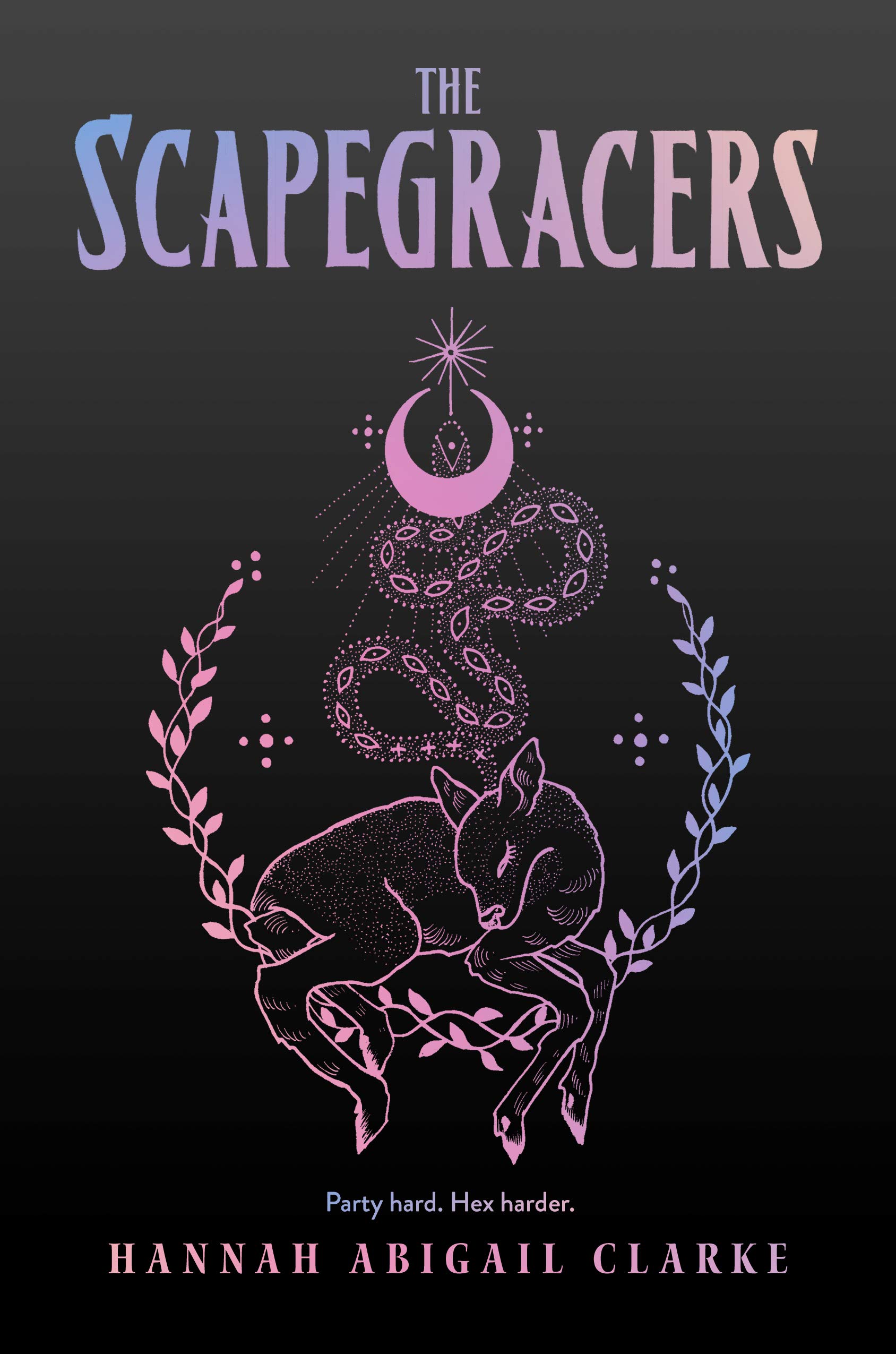
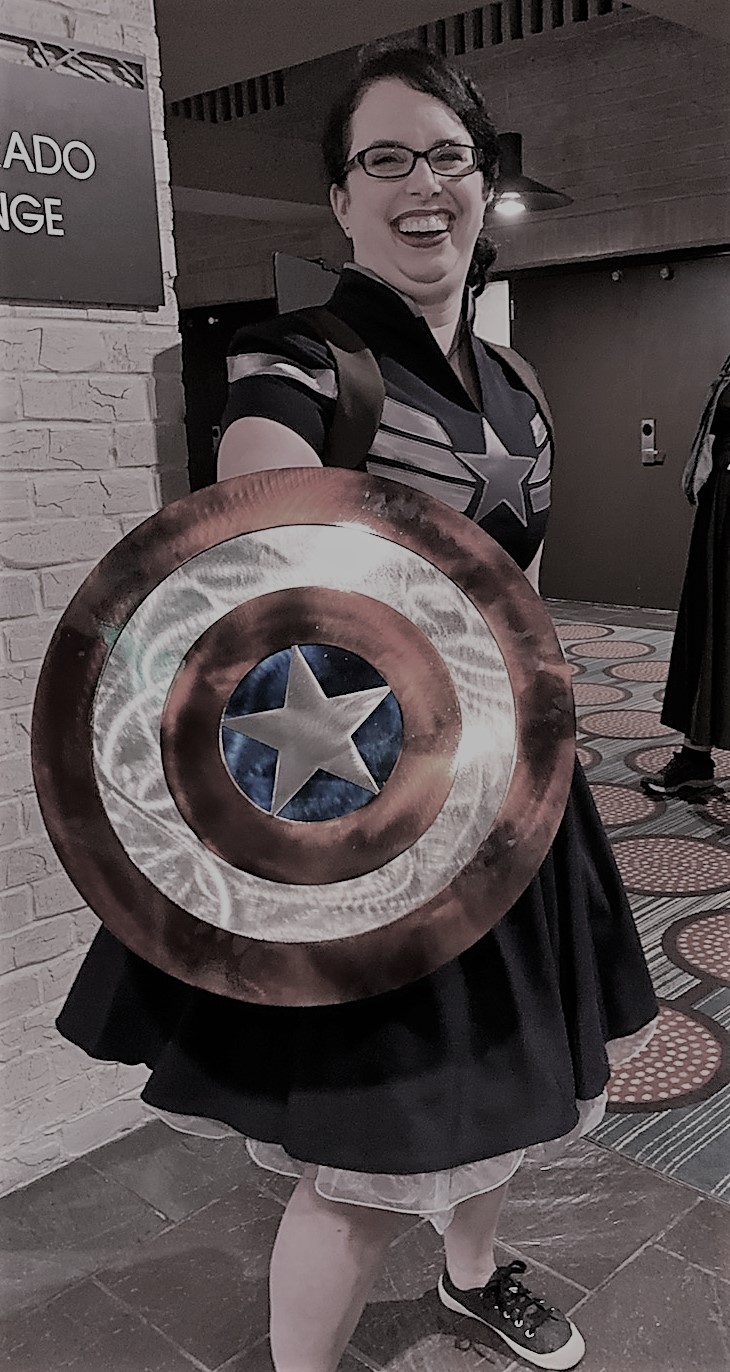 Amy Tenbrink spends her days handling strategic and intellectual property transactions as an executive vice president for a major media company. Her nights and weekends over the last twenty-five years have involved managing a wide variety of events, including theatrical productions, marching band shows, sporting events, and interdisciplinary conferences. Most recently, she has organized three Harry Potter conferences (The Witching Hour, in Salem, Massachusetts; Phoenix Rising, in the French Quarter of New Orleans; and Terminus, in downtown Chicago) and ten years of Sirens. Her experience includes all aspects of event planning, from logistics and marketing to legal consulting and budget management, and she holds degrees with honors from both the University of Southern California’s Thornton School of Music and the Georgetown University Law Center. She likes nothing so much as monster girls, Weasleys, and a well-planned revolution.
Amy Tenbrink spends her days handling strategic and intellectual property transactions as an executive vice president for a major media company. Her nights and weekends over the last twenty-five years have involved managing a wide variety of events, including theatrical productions, marching band shows, sporting events, and interdisciplinary conferences. Most recently, she has organized three Harry Potter conferences (The Witching Hour, in Salem, Massachusetts; Phoenix Rising, in the French Quarter of New Orleans; and Terminus, in downtown Chicago) and ten years of Sirens. Her experience includes all aspects of event planning, from logistics and marketing to legal consulting and budget management, and she holds degrees with honors from both the University of Southern California’s Thornton School of Music and the Georgetown University Law Center. She likes nothing so much as monster girls, Weasleys, and a well-planned revolution.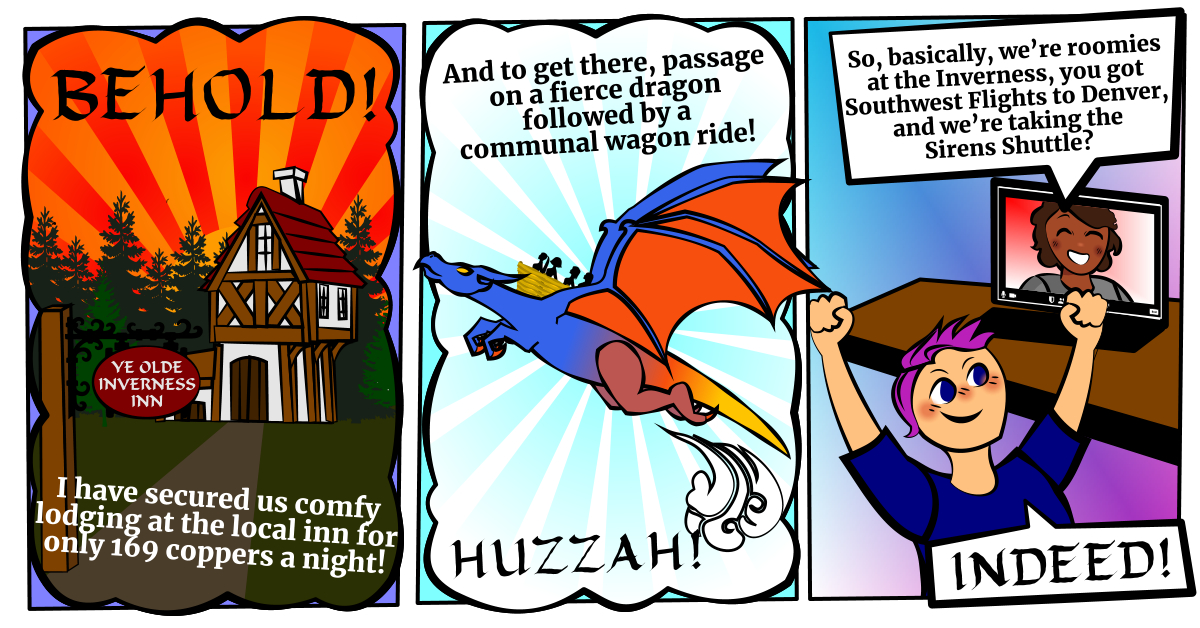


























































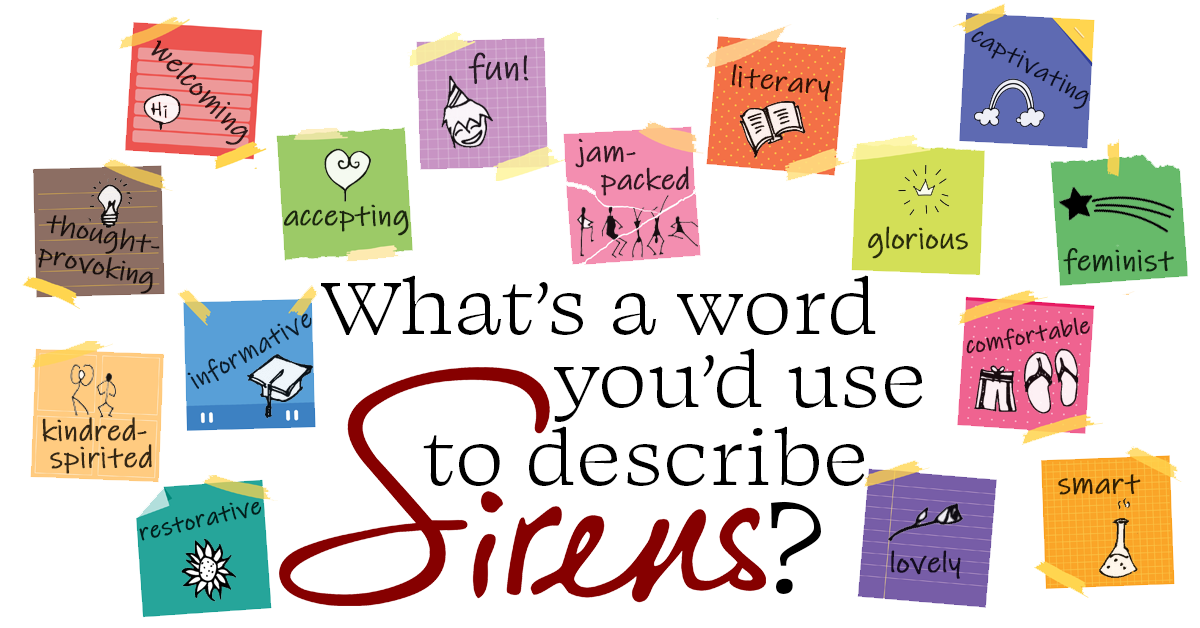
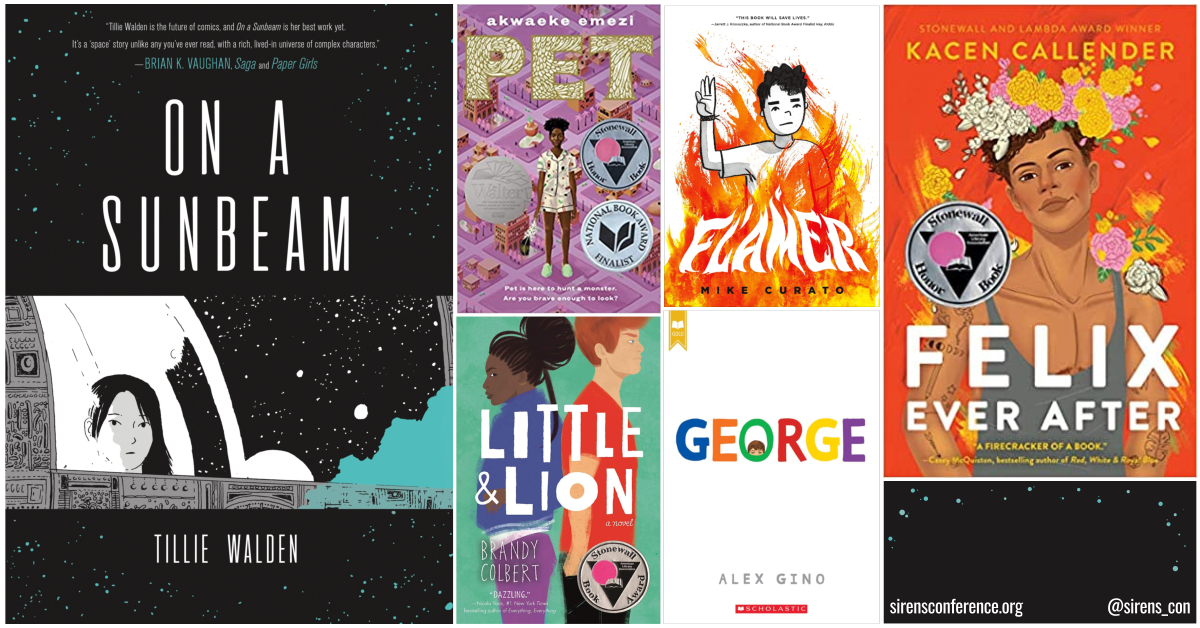




Connect with the Sirens community
Sign up for the Sirens newsletter